Our Yangyang Travel Essentials include a look at some of the most important facts and travel tips to make the most out of your holiday to South Korea. We’ll look at the climate and best times to visit, the type of power outlets used and the emergency phone number if you need help. We’ll check out transport to and around the city, as well as the most exciting annual events, celebrations and festivals in the region.
Finally, we’ll look at a few of the must-see historic, quirky and fun sites to check out while you’re here. Look over all the useful travel information you need to make lifelong memories on a holiday in Yangyang.
What are the main towns and villages around Yangyang?

Yangyang-eup (양양읍)
Yangyang-eup is a small village situated on the Namdae river offering plenty of opportunities for outdoor adventure and cultural excitement. Visit stunning beaches with soft sands and clear waters, walk hiking trails in national parks, visit historical sites and architectural buildings, or get out on the river to see the region in a whole different way. This small town is quiet and quaint, and offers an opportunity to see authentic local culture as you walk the quiet streets.
Ganghyeon-myeon (강현면)
Ganghyeon-myeon is near Mulchigyo and Ganghyeonchodeunghakgyo, an ideal spot from which to explore local communities and take day trips to surrounding towns. It’s not far from Naksan Beach, where you relax in the sun, sand and surf. You can visit Naksansa Temple, an ancient Buddhist temple marked by towering statuary and the Uisangdae Pavilion, which offers panoramic ocean views over the Sea of Japan. From gorgeous architecture to serene history, this is a cultural gem of the region.
Hyeonnam-myeon (현남면)
Hyeonnam-myeon is a town near Jeonpomae-ri offering lots of fun and exciting activities for your holiday. From here, you catch the mind-blowing cliffside views from Hyuhyuam or relax on the endless golden sands and dark turquoise waters of Jukdo Beach. You can explore the wilderness at Hajodae or see the historic home of Confucian scholar Ojukheon with its onsite museum. Also plan to visit Younggeumjeong Pavilion for spectacular nighttime views, or take photos at the Yondaeri Maebawi Artificial Waterfall.
Seo-myeon (서면)
Seo-myeon is a township outside of Gyeongju City offering a wealth of fun things to see and do from shopping and dining to nightlife and cafe culture. You can visit a traditional fish market for fresh seafood, or head to the Seven Luck Casino and game all night. If you’re looking for nightlife, this place is dotted with great clubs. Cafe Street is the heart and soul of the local coffee scene, and Food Street is an expansive dining destination with a range of restaurants.
When is the best time to travel to Yangyang?

- Yangyang's climate is classified as a humid subtropical climate with hot, humid summers and cold winters.
- The most rainfall is seen in August, with an average of 420 mm of rain.
- The warmest months of the year are June, July and August, with average high temperatures above 23° C.
- The best time to visit is from April to June or September to October.
Bekijk ook dit
- 10 Best Family Things to Do in Yangyang

10 Best Family Things to Do in Yangyang
South Korea - 10 Great Restaurants in Yangyang

10 Great Restaurants in Yangyang
South Korea - 10 Best Things to Do After Dinner in Yangyang

10 Best Things to Do After Dinner in Yangyang
South Korea
Yangyang basics
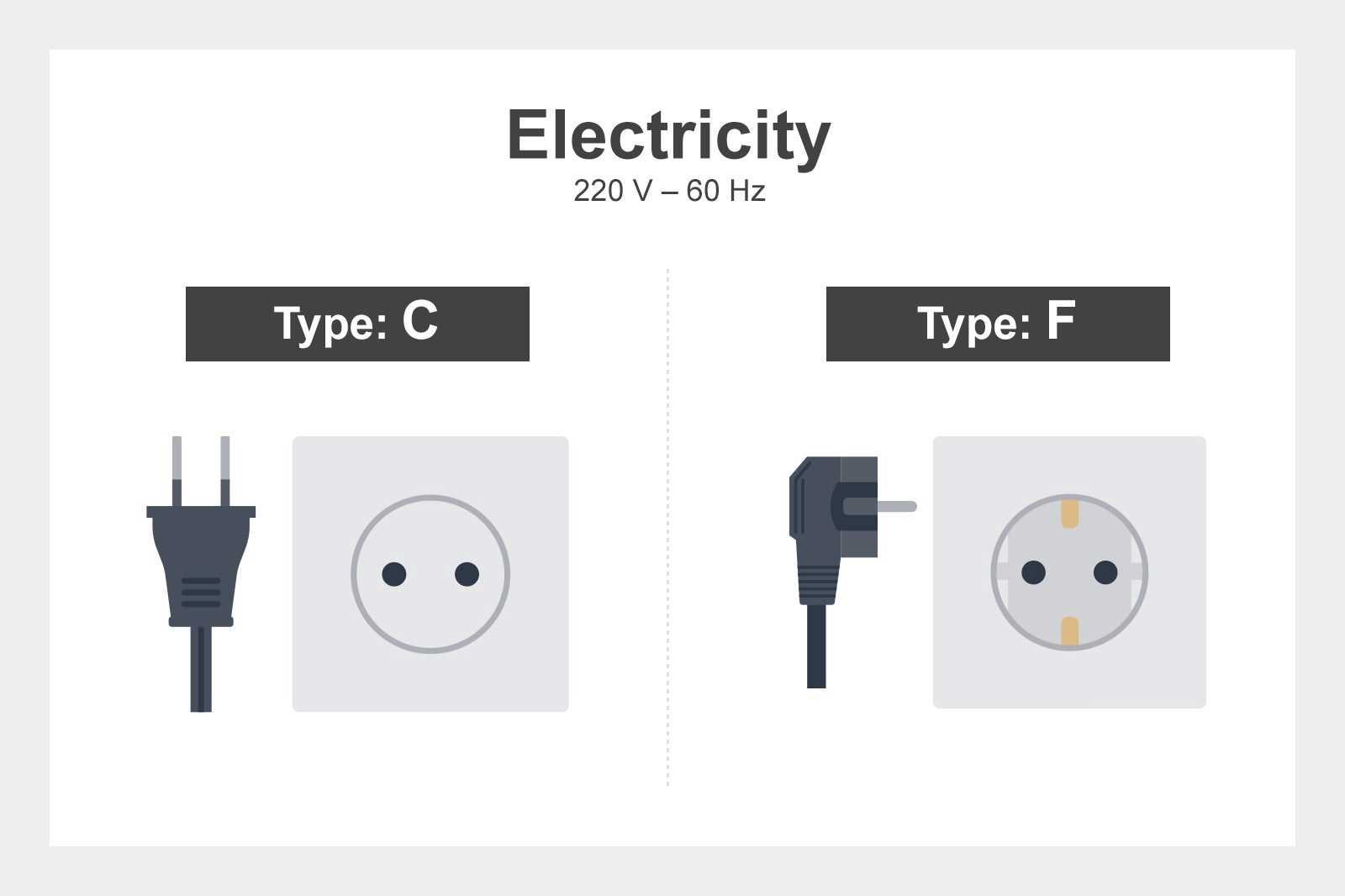
- Plug type: The plug type is type C or F. These use 2 rounded prongs, which are compatible with type E, but not type A or B.
- Electricity: Electricity and current are 220V and 60 Hz.
- Currency: The currency is the South Korean won, or hwan.
- International dialling code: The international dialling code is +82.
- Emergency telephone number: For emergency telephone calls, dial 112.
How to get to my hotel in Yangyang?

The 2 major ways to get to your hotel in Yangyang include by plane and bus. The town also has a nearby port if you wish to travel to or from the area over the water.
Airports
The city is serviced by Yangyang International Airport, or YNY. It’s a small airport, and flights are not as frequent as they are in some larger cities.
Major train stations
The nearest train to Yangyang is Gangneung station. From there, you will need to board a bus (they run hourly) to town. The trip takes a little over an hour.
Ports
Yangyang is served by Namaehang Port, which is also considered one of Yangyang’s 'Eight Sights'. From here, you can see rocky beaches and catch ferries to surrounding points of interest.
foto door Jhoyg3 (CC BY-SA 3.0) bewerkt
How to get around Yangyang?

Travel tips
The public bus system is generally the best way to get around YangYang. Unfortunately, many outlying points of interest are not serviced by bus lines, so visitors will need a car hire, rideshare, taxi or to book a tour to reach them. Your hotel or local visitor’s centre may be able to help you book a trip.
Taxi and rideshare apps
The region does have several types of taxis, including standard taxis, which are orange or silver, electric taxis that are blue, yellow coop taxis and deluxe taxis that are black and gold. Finally, larger groups of up to 10 people may be able to hail a jumbo taxi which is a minivan-style transport.
Bus network
Yangyang does have a public bus system that is convenient and reliable so long as you are in town. Transport cards are available, which allow unlimited rides within the city limits. Buses do not travel between the city and outlying points of interest or villages.
Car hire
Car hire is a good way to get around with the freedom to go where and when you want. If you travel to outlying areas, travel in groups and avoid driving long distances at night.
foto door Jhcbs1019 (CC BY-SA 4.0) bewerkt
What are the main annual events in Yangyang?

Yangyang Salmon Festival (양양연어축제)
- When: Held over 2 days every November
- What: This event celebrates the salmon industry in the county with bare-hand salmon-catching contests, salmon fishing, running with salmon and other fun events and excitement.
- Where: It’s held up and down the Namdaecheon River.
Yangyang Songi Festival (양양송이축제)
- When: Held every October over 5 days
- What: This festival celebrates the golden mushrooms known as songi mushrooms, the diamonds of the forest. Festival attendees harvest mushrooms from the surrounding hills and learn to make traditional foods, and you can visit local restaurants to enjoy dishes made with the mushrooms.
- Where: Yangyang Namdaecheon Stream Event area
Yangyang Sunrise Festival (양양 해맞이축제)
- When: Every December
- What: This festival celebrates the end of the year and the transition to the new year. It’s marked by the tolling of a bell for the new year, followed by fireworks along the beach. It also features sunset celebrations, live music, sunrise views, photo opportunities, Buddhist ceremonies, paper lantern hanging and rituals to the god of the sea.
- Where: Naksan Temple
What are the main landmarks in Yangyang?

Naksan Temple (낙산사)
Naksan Temple is a Korean Buddhist temple on the slopes of Naksan Mountain about halfway between Yangyang and Sokcho. It overlooks the Sea of Japan, offering stunning views. The temple was founded in 671 CE and is notable for its towering, ornate statue of Haesugwaneumsang, the Bodhisattva of Mercy.
Hyuhyuam (휴휴암)
Hyuhyuam is a hermitage where you meditate and free your mind from negative emotions. It’s famed for its natural rock formations that resemble a reclining Buddha and the Bodhisattva of Compassion, among other things. The hermitage has ornate architecture, beautifully detailed statues and a visitors centre.
Hajodae (하조대)
The Hajodae unmanned lighthouse sits atop a cliff offering picturesque views of the East Sea. Legend has it that the lighthouse is named from the first sounds made by 2 founding members of the Joseon dynasty. It’s renowned for its sunrise and sunset views. A famed Korean drama was filmed here.
Osan-ri Prehistory Museum (오산리 선사유적박물관)
Osan-ri Prehistory Museum is a small museum dedicated to the Osan-ri Archaeological Site. The artefacts onsite date to the Neolithic period and include everything from stoneware to arrowheads and tools related to hunting, fishing and gathering. The museum is spread over 2 exhibition halls and explores ancient local culture.
Dit artikel bevat persoonlijke meningen van de Go Guides-redactie. Hotels.com compenseert auteurs voor hun artikels die op deze site verschijnen. Een dergelijke vergoeding kan reis- en andere kosten omvatten.
Begin met het plannen van je reis
Accommodaties in Yangyang
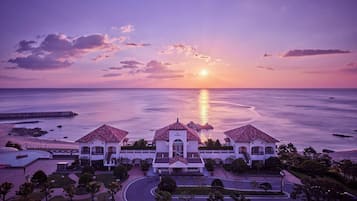
Sol Beach Yangyang
Sol Beach Yangyang

Gangneung Chonpines Ocean Suites Hotel
Gangneung Chonpines Ocean Suites Hotel
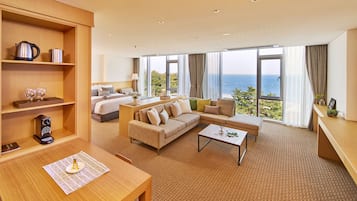
Naksan Beach Hotel
Naksan Beach Hotel
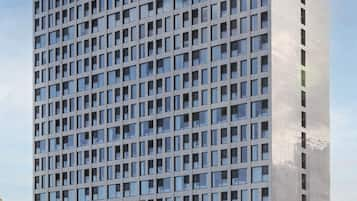
CENTUMMARK Hotel Yangyang
CENTUMMARK Hotel Yangyang

SL Hotel Gangneung
SL Hotel Gangneung

Dignity Hotel
Dignity Hotel
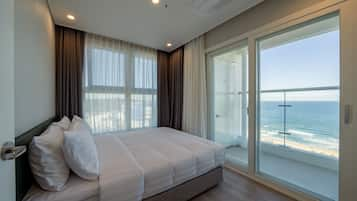
Chestertons Naksan
Chestertons Naksan
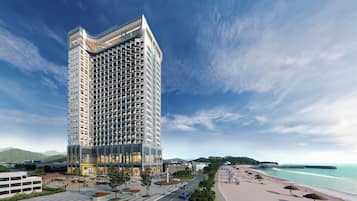
Granbay By Sotasuite
Granbay By Sotasuite
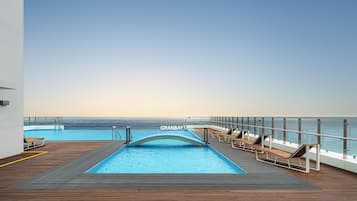
Urbanstay Naksan Beach
Urbanstay Naksan Beach

Gangneung Kyungpodae La-Mer Hotel
Gangneung Kyungpodae La-Mer Hotel
Gerelateerde verhalen
- 10 Best Family Things to Do in Yangyang

10 Best Family Things to Do in Yangyang
South Korea - 10 Great Restaurants in Yangyang

10 Great Restaurants in Yangyang
South Korea - 10 Best Things to Do After Dinner in Yangyang

10 Best Things to Do After Dinner in Yangyang
South Korea - 10 Things to Do in Yangyang on a Small Budget

10 Things to Do in Yangyang on a Small Budget
South Korea - 10 Best Local Restaurants in Yangyang

10 Best Local Restaurants in Yangyang
South Korea - 5 Best Road Trips near Yangyang

5 Best Road Trips near Yangyang
South Korea - 10 Best Local South Korean Food to Try in Yangyang

10 Best Local South Korean Food to Try in Yangyang
South Korea - 10 Best Things to Do for Couples in Yangyang
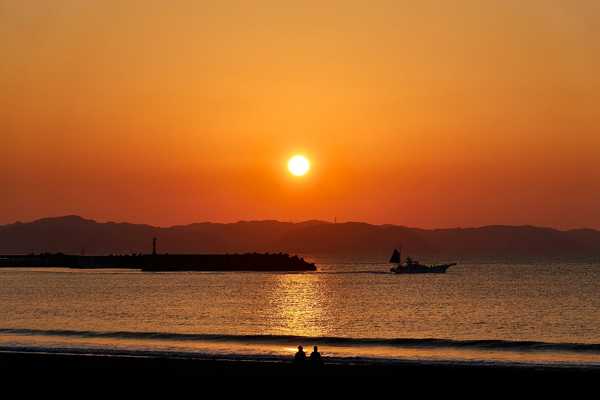
10 Best Things to Do for Couples in Yangyang
South Korea
